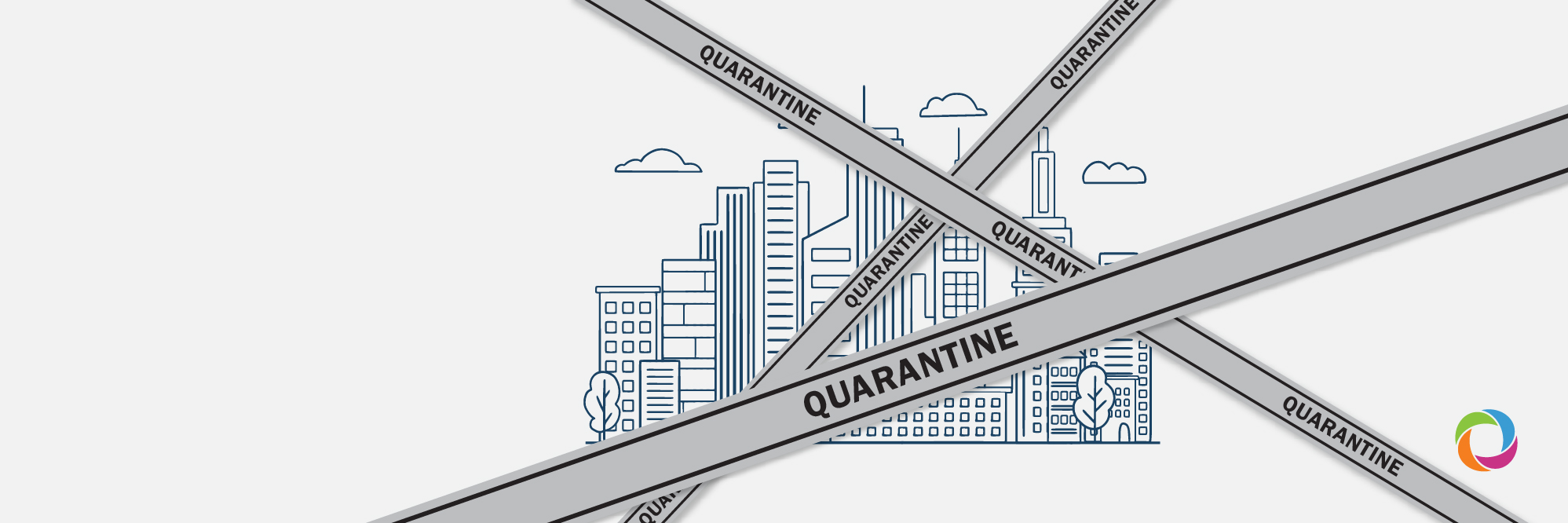Following the declaration of the pandemic, unprecedented global lockdowns were put into force with restrictive measures adopted by governments worldwide. Lockdowns have interfered with certain basic human rights, such as freedom of movement and the freedom of choice, in the name of the public good. The present global state of affairs raises questions about the lawfulness and ethics of the current global lockdown. This article presents ethical perspective of public health measures such as mass quarantines and lockdowns and the principles that should guide decision-making in medical emergencies such as the current pandemic.
Pandemics raise challenging questions for governments and international actors who have to decide how to strike a balance between the rights and duties of individuals and aspects of the public interest, and to do so both ethically and lawfully. Public health ethics come into play by looking at health concerns for the population and appropriate policies. In some frameworks, the emphasis is placed on how to limit the restriction of individual rights. According to this approach, a city-wide quarantine is a dramatic step because, in general, limiting people’s freedom of movement is considered an action that infringes upon what many see as a basic human right.
China, the country where the Covid-19 originated, has been praised by the World Health Organization for its “bold” management of the virus and has set the tone for the pandemic response elsewhere, making the lock-down look like a viable alternative. “In China you can do it: you can tell people to stay at home and you can weld back that door, so they can’t get out. But in a democracy, you can’t [do this]”, stated Johan Giesecke in an interview, a leading epidemiologist in Sweden, one of the few countries which decided to avoid the lock-down approach.
Gisecke, who is an adviser for the Swedish government, and has been chief scientist at the European Center for Disease Control and adviser to the World Health Organization’s Director-General, stated that early in January the Swedish government has decided to take the evidence-based approach of the so-called herd-immunity. “The strategy is to protect the old and the frail; try to minimize their risk of becoming infected, and taking care of them if they get infected. If you do that – the way we’re doing it – you would probably get herd immunity”, stated Gisecke, who is advocating that eventually the numbers of infected and deaths will be even across both countries with and without lock-downs.
International human rights law, specifically the International Covenant on Civil and Political Rights (ICCPR), requires that restrictions on human rights for reasons of public health or national emergency must be lawful, necessary and proportionate. Restrictions such as obligatory quarantine or the isolation of symptomatic people can be deemed necessary to achieve a legitimate objective based only on scientific evidence and on their proportionality to the overall objective. “When you start looking around at the measures that are being taken now by different countries, you find that very few of them have the shred of evidence base. [] Border closures, school closures, social distancing – there’s almost no science behind most of these”, stated Gisecke.
Numerous ethical frameworks have been developed that aim to guide planning and decision-making processes regarding the pandemic response. Although no consensus ethical framework exists, agreement largely exists on a configuration of values and considerations.
There are several principles that should guide decision-making in medical emergencies such as pandemics. At the forefront of justification for quarantine lies the issue of proportionality. Proportionality requires that measures are not excessively restrictive in relation to the harms that they aim to prevent. There must be clear scientific evidence backing the cost-advantage analysis and there must be a reasonable belief that quarantine will be effective. When restrictions are justified, another critical principle comes into play: reciprocity. Where individual rights are limited, the state must take on additional duties. These include ensuring that any burdens imposed are as limited as possible and basic resources such as food, water and medical care must be available.
These lead to another element of reciprocity: the requirement to keep people informed. Regular updates based on scientific information need to be provided and information about the likely length of quarantine needs to be given – and updated.
Meanwhile, lawsuits are continuously piling-up against governments in the US, New Zealand, the UK, Germany and France among others, claiming that the lock-downs are unconstitutional. The pandemic response has opened up discussions about the constitutionality of the measures taken and how they interfere with human rights, dividing the law and ethics guilds on the issue. Next to being disproportionate comparing to the threat it poses and not evidence-based, some professors are claiming that the collateral damage caused by the lock-down will be more significant. Currently, no comprehensive research or risk-assessment has been done on the loss of quality of life and the harm to the social fabric of society as a result of the continuous lock-down.
For further advice and consultations on the topic, the DevelopmentAid platform has an extensive registry of law, human rights and health experts working in the development sector.

